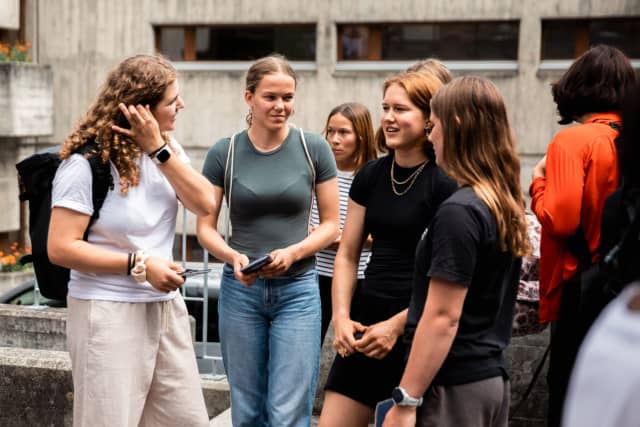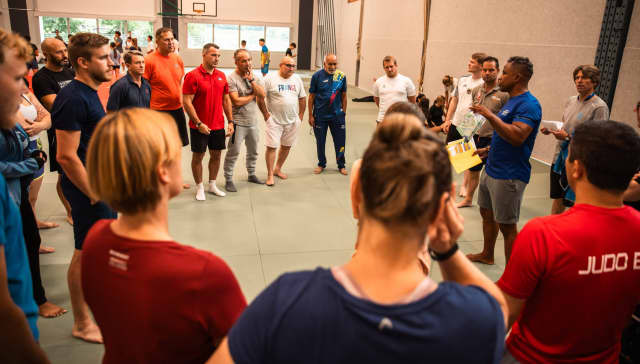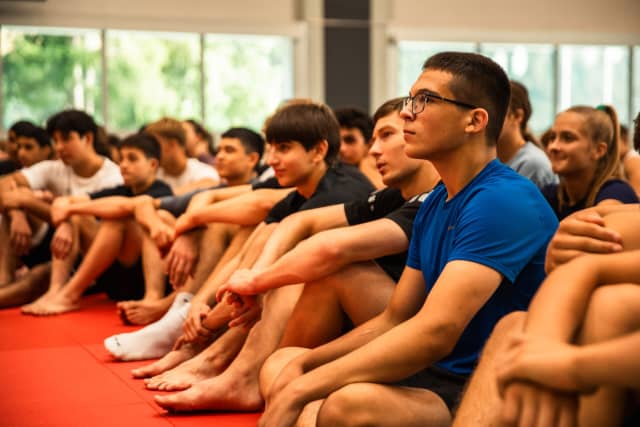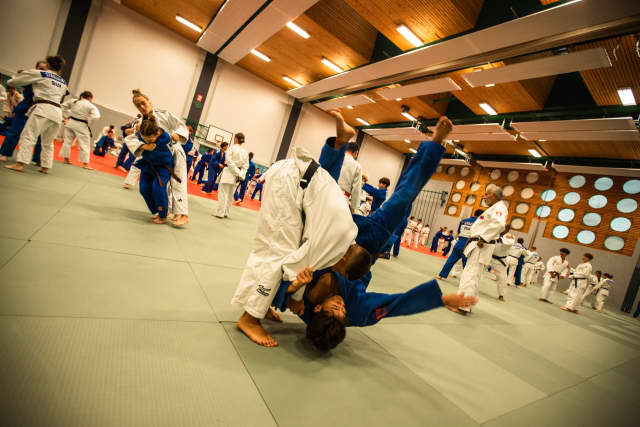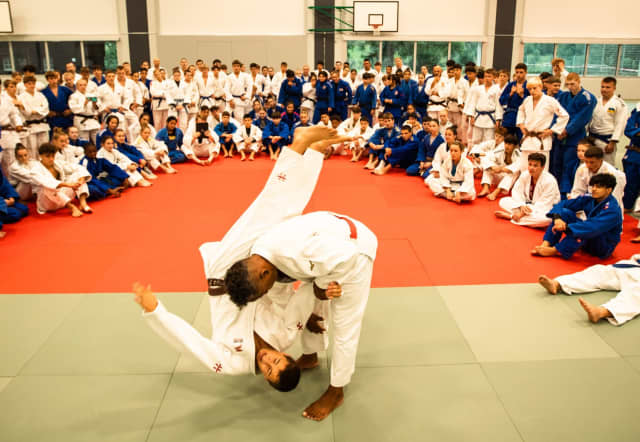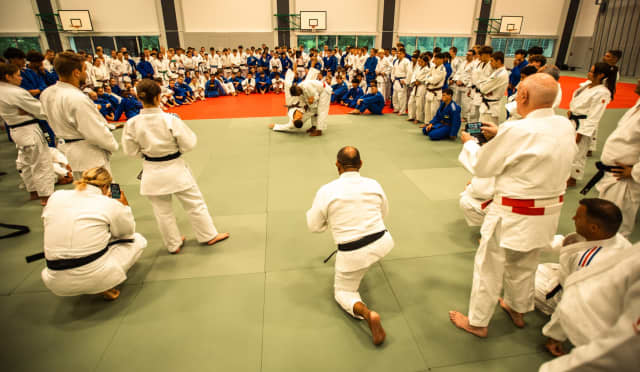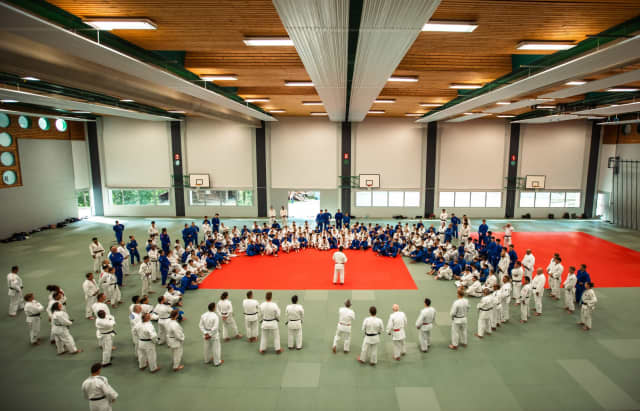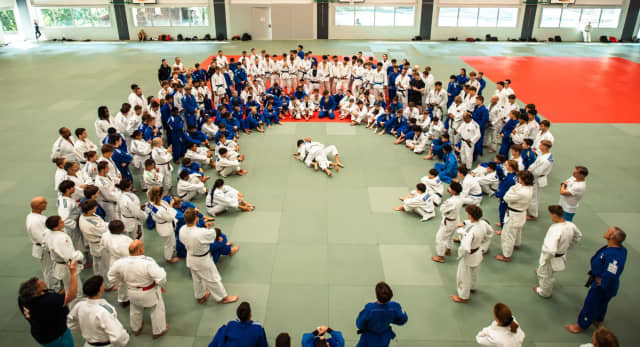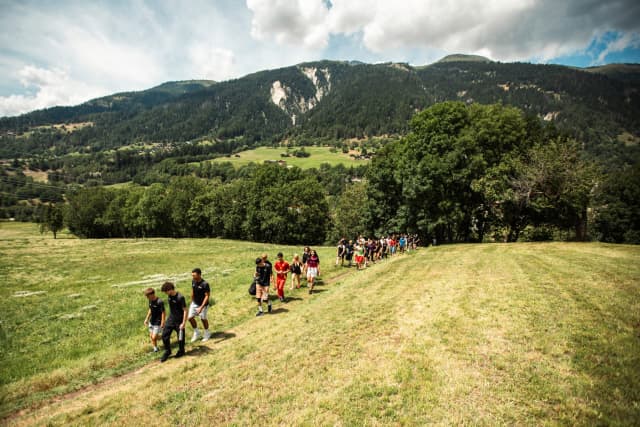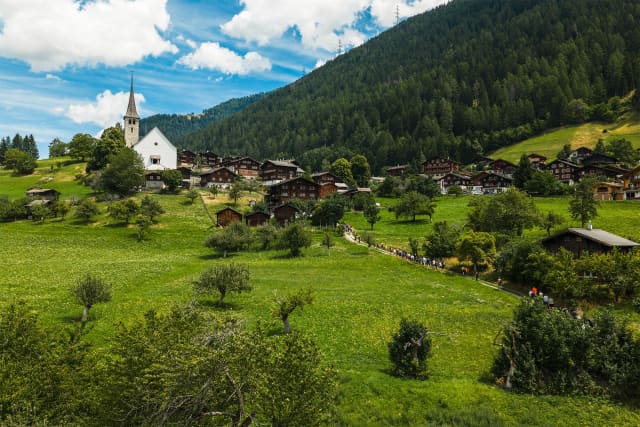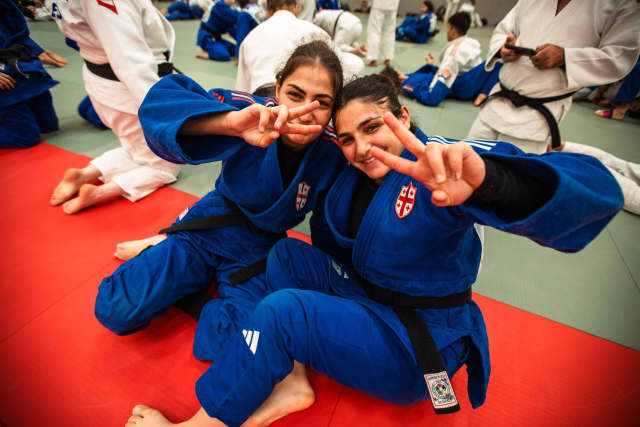With just one year to go until the Youth Olympic Games, this year’s camp broke all previous records. In total, more than 500 people, athletes and staff, took to the tatami. All delegations were represented by both female and male athletes, reflecting the camp’s strong commitment to gender equality and inclusivity.
“This is the first time we’ve reached such numbers,” said Aschwanden. “It was something very special. The overall energy was fantastic and with so many participants, we had to split the sessions into two groups. The level was excellent but what I found most rewarding was the cultural exchange. This is not only about judo as a sport but about judo culture and everything it represents.”
The camp’s success is built on years of loyalty and support, thanks to the International Judo Federation and Olympic Solidarity, which play a key role in making the event possible by inviting delegations from around the world, alongside all the other participants. This year, invited nations were Albania, Bolivia, Botswana, Ecuador, Georgia, Lebanon, Madagascar, Moldova, Montenegro, Panama, Sri Lanka, Tunisia, Ukraine, Venezuela and Zambia.
Behind the scenes, the efforts of Larisa Kiss, IJF Director for the Olympic Games and Olympic Movement, and Leandra Freitas, Assistant to the IJF Head Sport Director, ensured every participant was in the best possible environment to progress, alongside the dedicated camp coaching team.
Camp Director Philippe Lain-Nau was delighted with the outcome, “With more than 450 athletes and 70 coaches, we reached new heights. Everything ran smoothly from start to finish, from 20th to 26th July. The mix of nations is fascinating. More developed judo countries can meet others and exchange training techniques; learning goes both ways. For our Swiss judoka, it’s also a fantastic opportunity to meet international peers. Judo remains the central focus, of course, but the off-tatami exchanges are just as important.
We welcome familiar faces every year, alongside new participants, which shows how strong our community is. This year we also introduced a kata activity for Swiss judoka, which we then opened to other participants. I believe it was a great success.”
Another first for the camp was a focus on mental health, led by mindfulness coach and mental fitness trainer Jacqui Edmiston. The programme was split into two parts, one for athletes and coaches and another exclusively for coaches.
Participants gave highly positive feedback, “We were very interested in learning about the role of sleep in mental health. We did several group exercises, it was excellent,” said one attendee.
IJF Mental Health Officer, Veronika Jakl, added, “Mental health is a continuum, not a static state. We used a range of exercises so participants could discuss this complex topic in their own language. We explored what mental health is, why it matters for performance and the barriers to speaking about it.”
The coaches’ session focused on practical tools to support athletes, with particular attention paid to anxiety, depression and sleep, while also addressing broader stressors such as personal life and school-related pressures, recognising that mental wellbeing in judo goes far beyond competition results.
The 2025 Sergei Judo Camp will be remembered not only for its record-breaking attendance but also for its continued commitment to both athletic and personal development, and to ensuring that judo remains a sport for everyone, reinforcing its place as a unique event in the judo calendar.
- Photos: https://www.sjcamp.ch/photos-3/#blocn2025|0
- Video: https://www.sjcamp.ch/videos-2024/
- SJCamp: https://www.sjcamp.ch/

